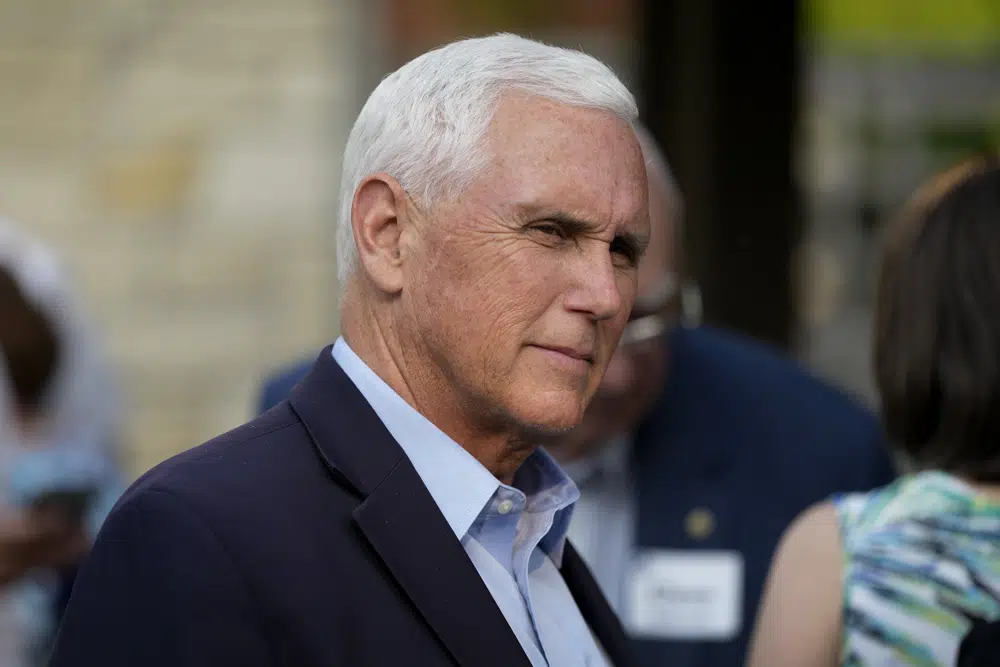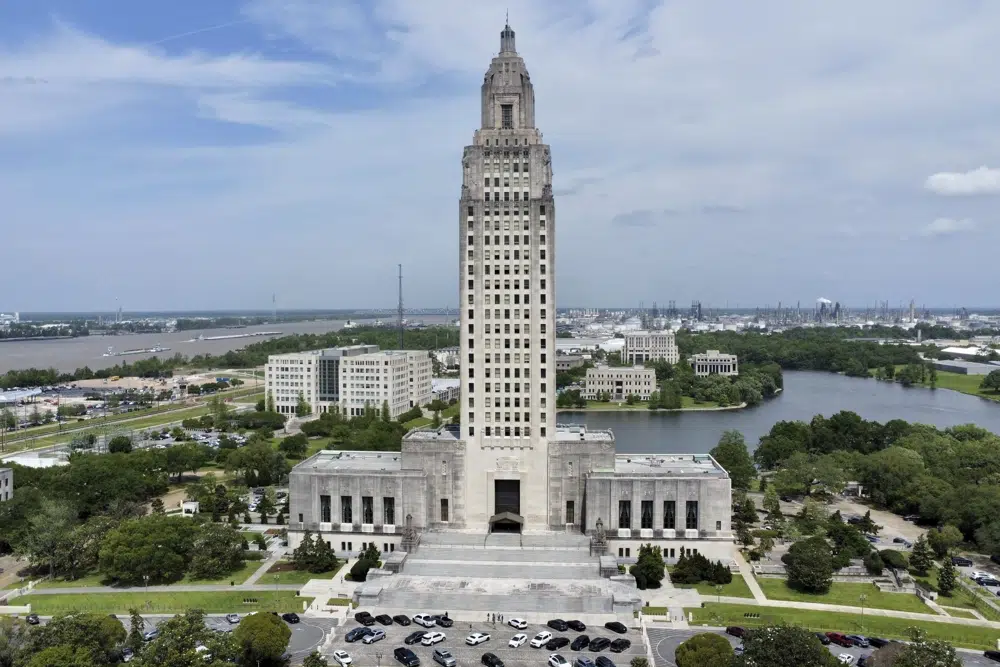AG Steve Marshall applauds bill that corrects fatal flaw in parole statute

On Thursday, Alabama Governor Kay Ivey signed legislation to prevent criminals facing serious pending charges from getting out on parole. House Bill 131 (HB131) was sponsored by State Representative Wes Kitchens (R-Guntersville) and carried in the Senate by State Sen. Sam Givhan (R-Huntsville). Alabama Attorney General Steve Marshall applauded the signing of HB131 to correct a fatal flaw in Alabama’s parole system. HB131 was proposed after the infamous Jimmy O’Neal Spencer case exposed a statutory loophole that allowed a prisoner with pending charges to still be considered for parole before those charges were properly resolved. “Throughout the session, this legislature has prioritized the correction of deficiencies within our criminal justice system,” said Attorney General Marshall. “HB131 closes an important loophole to ensure that no offender be released on parole while new charges are pending. This is a public safety issue, but it also spares crime victims of having to show up and relive their experiences at parole hearings that are unnecessary.” In August 2022, Jimmy O’Neal Spencer – who was serving two life sentences and was awaiting trial on three capital-murder charges – was given a parole hearing. The parole board at the time denied Spencer’s parole, but Marshall said that this peculiar loophole in our parole system needed to be closed. According to the synopsis, “Under existing law, prisoners in the custody of the Department of Corrections are eligible for parole in certain circumstances. This bill would provide that a prisoner is not eligible for parole if he or she has been duly charged with a new offense that has not been disposed.” “If you are a prisoner facing serious charges that carry penalties by more than six months, you can’t be up for parole,” Kitchens said. Spencer, a lifetime career criminal, came up for parole even though he was then facing three charges of capital murder for the slayings of Colton Lee, Martha Reliford, and Marie Martin. Crimes he committed after the previous Parole Board granted him parole even though he was serving two life sentences. An angry Gov. Ivey replaced the Board members in the wake of this and other debacles for their leniency that was widely condemned as far too reckless. The new Parole Board denied Spencer’s parole application, but that could have ended differently with much more lenient parole commissioners. The signing of this legislation has closed that loophole in existing statute. 2023 has been a good legislative session for Marshall. He said that as the Chief Law Enforcement Officer of Alabama, he has led on three public safety initiatives this legislative session, including the Deputy Brad Johnson Act and SB143, creating sentencing enhancements for members of criminal enterprises, including gangs. Each bill has been met with overwhelming bipartisan support. The legislature has also imposed stiffer penalties on exhibition driving, organized retail theft, and deadly fentanyl traffickers. The state is in the process of building two new mega prisons in Elmore and Escambia Counties. Marshall is serving his second elected term as attorney general following his landslide re-election last year. Tuesday is the final day of the 2023 Alabama Regular Legislative Session. To connect with the author of this story or to comment, email brandonmreporter@gmail.com.
Daniel Sutter: The challenge of political compromise

Kevin McCarthy reached a debt ceiling compromise with President Joe Biden and Senate Majority Leader Chuck Schumer. Unsurprisingly, fiscally conservative Republicans are criticizing the Speaker. Economics helps us understand the challenges in attaining the best bargain possible under given circumstances. House Republicans’ Fiscal Responsibility Act of 2023 revealed their debt ceiling wish list. Items included: rolling back discretionary spending and capping its growth, reclaiming unspent COVID funds, ending the student loan repayment pause and cancelation, rescinding the hiring of new IRS agents, repealing the Inflation Reduction Act’s alternative energy subsidies, and strengthening work requirements for Medicaid and food stamps. Bargaining models offer several insights. The more patient bargainer, the one able to stay at the table longer, gets better terms. The party making the last offer has an advantage. A better payoff if no agreement is reached helps a party negotiate better terms. And failed negotiations result from imperfect information when one or both parties mistakenly think the other will accept bad terms. A government shutdown or default on U.S. Treasury Securities was the outcome from no agreement. The payoff for each side in this event would be voters’ allocation of blame. The negotiating process itself could affect this; voters might blame and punish in 2024 a party refusing to bargain. Neither side wants the other to think they will accept bad terms. This illuminates the Biden Administration suggesting challenging the constitutionality of the debt ceiling law before the negotiations. Successfully executing a ruse is difficult, as small tells reveal to a shrewd negotiator a willingness to accept less favorable terms. Speaker McCarthy and Senator Schumer both represented others who had to approve a deal. Representation creates a way to appear inflexible. Many union leaders have told management that their members would never accept given terms. People not in the room cannot give off any tells. Studying economic models only helps so much. A good negotiator must be able to put insights to work in real bargaining. Political bargaining is difficult for a second reason, namely, discerning which goals to compromise on. A deal including every item in the Fiscal Responsibility Act is clearly good. Deciding which goal to not compromise or whether a half measure advances a goal is much more complicated. Bargainers inevitably face Monday morning quarterbacking. Every Republican can claim he or she would have gotten a better deal. We cannot replay this negotiation with another Republican in charge, making such claims untestable. Compromise is often unsatisfying. People who care strongly about a vision of a good society and the government policies needed to implement this vision will dislike compromising their values. We admire frequently uncompromising politicians. The changing media environment over the past forty years – talk radio, cable news, the internet, YouTube, and live streaming – have given voice to purists on the left and right. Republicans think that uncompromising leaders – instead of Bob Dole, Paul Ryan, Mitch McConnell, or now Speaker McCarthy – would put liberals in their place! This criticism confuses consistency in personal life and politics. We can always live by our personal values. We can always conduct our business and professional affairs by our (hopefully high) standards or treat others with decency and respect. Politics is the making of government decisions affecting everyone. Liberals and conservatives cannot both implement the policies needed to attain their visions. America is a liberal democracy based on the moral equality of citizens. This implies that only the consent of the governed legitimates government and that all citizens should consent. Only compromise between the values of the left and right can secure consent of all the governed. Advocates of no-compromise politics seemingly do not view those they would impose upon as their moral equals. Did Speaker McCarthy get a good deal? Only political insiders can possibly judge this. The willingness to negotiate a deal acceptable to both sides is good news if we want America to remain a liberal democracy. Daniel Sutter is the Charles G. Koch Professor of Economics with the Manuel H. Johnson Center for Political Economy at Troy University and host of Econversations on TrojanVision. The opinions expressed in this column are the author’s and do not necessarily reflect the views of Troy University.
Katie Britt accuses China of helping Iran work around American sanctions

U.S. Senator Katie Britt, during a recent hearing of the Senate Committee on Banking, Housing, and Urban Affairs claimed that highlighted how current American sanctions against Iran have failed to stop its commerce with China, which continues to buy Iranian oil and aid the development of Iran’s nuclear missile program. Questioning Biden Administration officials from the U.S. Department of the Treasury and the U.S. Department of Commerce, Senator Britt pointed to evidence that clearly shows that despite American sanctions, Iranian oil is being exported to China at record levels, Chinese firms are providing critical assistance in Iran’s efforts to develop nuclear weapons, and Chinese companies are providing surveillance technology as Iran monitors and censors its own people. “These two countries have long worked together, with China purchasing Iranian oil and Iran buying Chinese goods. China is perhaps the biggest partner for Iran in evading sanctions,” Senator Britt said. During her questioning, Senator Britt pointed out that while elevated sanctions are in place, Iran has experienced increased oil exports. Specifically, she asked if sanctions were being levied and enforced against Chinese ports receiving Iranian oil. Biden Administration officials repeatedly avoided answering the question directly. “At a time when China is our greatest geopolitical threat, I believe we must do more to stop them from aiding enemies such as Iran. What we are seeing is Iran circumventing American sanctions in close coordination with China. This is not only incredibly concerning, it is a major national security threat. The Biden Administration should be focused on using the tools available to enforce these sanctions and hold China accountable.” Iranian oil exports have hit new highs despite the U.S. sanctions during the last two months of 2022. Companies that track the flows claim that Iran has higher oil shipments to China and Venezuela. Energy consultant SVB International said Iran’s crude exports in December averaged 1.137 million barrels per day, up 42,000 bpd from November and the highest 2022 figure that SVB. “January exports were so far strong like previous months,” said Sara Vakhshouri of SVB. “Lower Chinese demand and Russia’s supply to China have been a major challenge for them. Most of its oil still goes to the Far East, ultimately China. Iran also helps Venezuela to export its oil.” Kpler is a data intelligence firm. Kpler puts Iranian crude exports at 1.23 million barrels per day in November. This is the highest level recorded since August 2022 and almost on par with April 2019′s rate of 1.27 million barrels per day, although they slipped to just below 1 million bpd in December. Iran, meanwhile, appears to be in the early stage of a growing border war with Taliban-controlled Afghanistan. Military equipment that Americans abandoned in Afghanistan has been moved toward the Iranian border. Katie Britt was elected to the Senate in 2022. To connect with the author of this story or to comment, email brandonmreporter@gmail.com.
Alabama advances to super regionals in NCAA baseball tournament

On Sunday, the University of Alabama baseball team defeated Boston College in a rain-delayed game in the NCAA regional tournament in Tuscaloosa 8 to 0. This dominating victory followed a come-from-behind win Saturday night over Troy University. The Tide scored four runs in the first inning, one in the second, one in the third, and two runs in the eighth inning. Five Tide players combined for eight hits, while seven Tide players scored runs in the game. Dominic Tamez had 2 hits, 2 runs, and a run batted in from 3 at-bats. Mac Guscette had 3 hits in 4 at-bats, 1 run, and 4 runs batted in. While the Tide scored 8 runs, there were no home runs hit. Jacob McNairy was the Tide’s starting pitcher. He pitched 7.2 innings, giving up only 3 hits, 3 bases on balls, no runs, and a 3.7 ERA. McNairy had a career-high 11 strikeouts. He was followed by two relievers who only gave up 1 hit. Boston College, on the other hand, played eight different pitchers. “What an awesome night for our baseball program, for our fanbase, and the players,” said Alabama interim Coach Jason Jackson. “I couldn’t be prouder of everybody that’s been involved and has worked hard to get to this point. We’re not done yet, but I’m just so excited that we got to do this on our field in front of our fans and move on to the next round.” The Tide is making a deep playoff run despite the mid-season firing of head baseball Coach Brad Bohannon who was the subject of an Ohio sports gambling probe. Jackson has won 13 of 17 games since taking over for Bohannon. 5,800 fans were on hand, a sell-out to watch the Tide advance. The Crimson Tide is 43 and 19 this season. Alabama baseball is now in the super regionals for the first time since 2010. The Tide will play the Wake Forest Demon Deacons next. Wake Forest (50 and 10) is the number-one seed in the tournament. The winner of the Wake Forest Alabama three-game series will advance to be one of eight teams to earn a berth in the Baseball College World Series at Charles Schwab Field in Omaha, Nebraska, beginning on June 16. To connect with the author of this story or to comment, email brandonmreporter@gmail.com.
Alabama legislative session ends today

On Tuesday, the Alabama Legislature will meet in Montgomery for the last day of the 2023 Alabama Regular Legislative Session. The Alabama Constitution limits the legislative session to a maximum of 30 days, and Tuesday is legislative day 30. The primary constitutional purpose of the regular legislative session is to pass the budgets. Alabama has two budgets: the education trust fund (ETF) and the state general fund (SGF). The budgets were completed on Thursday, May 25. The fiscal year 2024 budgets are the largest in state history and have been signed by Alabama Governor Kay Ivey. It includes two supplemental appropriations that go into immediate effect. The budgets include 2 percent raises for teachers and state workers. “I am proud to officially put my signature on yet another historic investment in our students, teachers, and schools,” Ivey said. “Alabama is serious about changing the trajectory of student outcomes, and our steady progress in the classroom and this record-setting education budget prove that to be the Gospel Truth. We are expanding our award-winning pre-K program into some of our highest poverty areas. We are supporting the implementation of the Critical Literacy and Numeracy Acts. We are, once again, increasing teacher pay, giving us even more of a competitive edge to recruit and retain the educators of today and tomorrow. The second purpose of the session is to pass legislation. The state Legislature has done this. Eight hundred eighty-three bills were introduced during this session. Tuesday will be the last day a bill can be passed, as any bill not sent to the governor by the end of the day will have to be reintroduced in the next legislative session. The Legislature has passed dozens of bills this session. Notably, the Legislature passed significant tax cuts by reducing the 4 percent state sales taxes on groceries. Lieutenant Governor Will Ainsworth said on Facebook, “BOOM! We just passed the largest tax cut in Alabama history. Thank you to every member of the House and Senate who supported cutting the grocery tax. The real winners are Alabama’s taxpayers.” The Legislature is also working on reducing state income taxes on overtime pay. Speaker of the House Nathaniel Ledbetter (R-Rainsville) said on social media, “Eliminating the state’s overtime tax rewards hard-working Alabamians and their employers. The Alabama House will keep finding ways to reduce taxes, just as we did by cutting the grocery tax in half. I look forward to Governor Kay Ivey signing HB217 into law soon.” In addition to the tax cuts, the Legislature passed tax rebates. Every tax filer will get a $150 check from the government. Couples who file jointly can expect $300. A key priority of this session for Gov. Ivey has been her “Game Plan” to renew and expand the state’s economic incentives to further grow the Alabama economy. “The Game Plan will give Alabama’s team the tools it needs to extend our winning record in economic development and help us unleash a new wave of growth and innovation across the state,” said Gov. Ivey. “From our rural areas to our big cities, this is going to benefit every corner of Alabama.” Another priority of this session was to get tough on the crime problem. The Legislature has passed bills to stiffen penalties on organized retail theft, fentanyl traffickers, and street racers, as well as penalty enhancements for gang members and other criminal organizations. The next scheduled legislative session will begin on February 6, 2024. To connect with the author of this story or to comment, email brandonmreporter@gmail.com.
Former VP Mike Pence files paperwork launching 2024 presidential bid in challenge to Donald Trump

Former Vice President Mike Pence filed paperwork on Monday declaring his campaign for president in 2024, setting up a challenge to his former boss, Donald Trump, just two years after their time in the White House ended with an insurrection at the U.S. Capitol and Pence fleeing for his life. Pence, the nation’s 48th vice president, will formally launch his bid for the Republican nomination with a video and kickoff event in Des Moines, Iowa, on Wednesday, which is his 64th birthday, according to people familiar with his plans. He made his candidacy official Monday with the Federal Election Commission. While Trump is currently leading the early fight for the nomination, with Florida Gov. Ron DeSantis polling consistently in second, Pence supporters see a lane for a reliable conservative who espouses many of the previous administration’s policies but without the constant tumult. While he frequently lauds the accomplishments of the “Trump-Pence administration,” a Pence nomination, in many ways, would be a return to positions long associated with the Republican establishment but abandoned as Trump reshaped the party in his image. Pence has warned against the growing populist tide in the party, and advisers see him as the only traditional, Reagan-style conservative in the race. A staunch opponent of abortion rights, Pence supports a national ban on the procedure and has campaigned against transgender-affirming policies in schools. He has argued that changes to Social Security and Medicare, like raising the age for qualification, should be on the table to keep the programs solvent — which both Trump and DeSantis have opposed — and criticized DeSantis for his escalating feud with Disney. He also has said the U.S. should offer more support to Ukraine against Russian aggression while admonishing “Putin apologists” in the party unwilling to stand up to the Russian leader. Pence, who describes himself as “a Christian, a conservative, and a Republican, in that order,” has spent months laying the groundwork for an expected run, holding events in early-voting states like Iowa, South Carolina, and New Hampshire, visiting churches, delivering policy speeches and courting donors. Pence’s team sees Iowa and its evangelical Christian voters as critical to his potential path to victory. Advisers say he plans to campaign aggressively in the state, hitting every one of its 99 counties before its first-in-the-nation caucuses next year. The campaign is expected to lean heavily on town halls and retail stops aimed at reintroducing Pence to voters who only know him from his time as Trump’s second-in-command. Pence served for more than a decade in Congress and as Indiana’s governor before he was tapped as Trump’s running mate in 2016. As vice president, Pence had been an exceeding loyal defender of Trump until the days leading up to January 6, 2021, when Trump falsely tried to convince Pence and his supporters that Pence had the power to unilaterally overturn the results of the 2020 election. That day, a mob of Trump’s supporters violently stormed the U.S. Capitol building after being spurred on by Trump’s lies that the 2020 election had been stolen. Many in the crowd chanted, “Hang Mike Pence!” as Pence, his staff, and his family ran for safety, hiding in a Senate loading dock. Pence has called Trump’s actions dangerous and said the country is looking for a new brand of leadership in the 2024 election. “I think we’ll have better choices,” he recently told The Associated Press. “The American people want us to return to the policies of the Trump-Pence administration, but I think they want to see leadership that reflects more of the character of the American people.” Pence has spent the 2 1/2 years since then strategically distancing himself from Trump. But he faces skepticism from both anti-Trump voters who see him as too close to the former president, as well as Trump loyalists, many of whom still blame him for failing to heed Trump’s demands to overturn the pair’s election defeat, even though Pence’s role overseeing the counting of the Electoral College vote was purely ceremonial and he never had the power to impact the results. Pence joins a crowded Republican field that includes Trump, DeSantis, former United Nations Ambassador Nikki Haley, U.S. Sen Tim Scott of South Carolina, tech entrepreneur Vivek Ramaswamy, and former Arkansas Gov. Asa Hutchinson. Former New Jersey Gov. Chris Christie plans to launch his own campaign Tuesday evening in New Hampshire, and North Dakota Gov. Doug Burgum will announce his bid Wednesday in Fargo. With Trump, a thrice-married reality star, facing skepticism among some Republicans during his 2016 run, his pick of Pence as a running mate assuaged concerns from evangelical Christians and others that he wasn’t sufficiently conservative. As vice president, Pence refused to ever criticize the former president publicly and often played the role of emissary, trying to translate Trump’s unorthodox rhetoric and policy proclamations, particularly on the world stage. After Trump’s legal efforts to stave off defeat of the 2020 election were quashed by courts and state officials, he and his team zeroed in on January 6, the date that a joint session of Congress would meet to formally certify President Joe Biden’s victory. In the weeks leading up to the session, Trump engaged in an unprecedented pressure campaign to convince Pence he had the power to throw out the electoral votes from battleground states won by Biden, even though he did not. As the riot was underway and after Pence and his family were rushed off the Senate floor and into hiding, Trump tweeted, “Mike Pence didn’t have the courage to do what should have been done.” Video footage of the attack shows rioters reading Trump’s words aloud and crowds breaking into chants that Pence should be hanged. A makeshift gallows was photographed outside the Capitol. Pence has said that Trump “endangered my family and everyone at the Capitol that day” and that history will hold him accountable. Despite his harrowing experience, Pence opposed efforts to testify in investigations into Trump’s actions on and in the lead-up to Jan. 6. He refused to appear before the House committee investigating
Louisiana Senate passes bill banning gender-affirming care for transgender youths

A controversial bill — that at one point had been presumed dead — banning gender-affirming medical care for transgender youths in Louisiana was passed by the Senate on Monday and is likely to reach the governor’s desk in the coming days. The bill, which passed in the Senate mainly along party lines, 29-10, would prohibit hormone treatments, gender-affirming surgery, and puberty-blocking drugs for transgender minors in Louisiana. The measure will go back to the House, which has already overwhelmingly passed the legislation, to approve minor amendments, including pushing back the effective date of the law to Jan. 1, 2024. If the House concurs, the legislation would be sent to the desk of Gov. John Bel Edwards, a Democrat who opposes it. Edwards has not said whether he would veto the bill. If he does, lawmakers could convene a veto session to try to override his decision. Last session, Edwards chose not to block a law banning transgender athletes from participating in women and girls sports competitions in Louisiana, although he successfully vetoed a similar measure last year. The proposed gender-affirming care ban gained national attention last month when a Senate committee voted to kill the bill. Longtime Republican state Sen. Fred Mills was the tiebreaker vote, opposing the legislation citing that he “relied on science and data and not political or societal pressures.” In a year when restrictions and prohibitions on gender-affirming care for transgender youths has been a priority on conservative agendas — with at least 18 states enacting laws limiting or banning the medical care, including all three of Louisiana’s bordering states — the rejection of the controversial legislation did not go unnoticed. In the days after the vote to defer the bill, state Attorney General Jeff Landry, who is a GOP gubernatorial candidate this year, and the Republican Party of Louisiana put pressure on Republicans to resurrect the bill. In a rare procedural move, the Senate voted to recommit the controversial bill to a different committee, successfully giving it a second chance at life. Additionally, anti-transgender activists took to social media, including conservative political commentator Matt Walsh, who tweeted to his nearly 2 million followers that Mills would regret his decision and that it is “the biggest mistake of his political career.” Mills, who is term-limited, told lawmakers on the Senate floor Monday that despite his family, businesses, and himself being harassed for his decision at the Capitol, he was proud of his vote and called it a “defining moment” in his legislative career. “I want to tell you, this is probably one of the biggest blessings in my life, this controversy. I’ve been attacked nationwide, but I don’t hate those people… they’re passionate about their issue,” Mills said. “The people that contacted me throughout the United States … thanking me that maybe we prevented a suicide (with the committee vote), I will let you all know I love you, and I hope things work out for you.” Opponents of the ban, argue that gender-affirming care, which is supported by every major medical organization, can be lifesaving for someone with gender dysphoria, which is distress over gender identity that doesn’t match a person’s assigned sex. Advocates for the LGBTQ+ community fear that without the care, transgender children could face especially heightened risks of stress, depression, and suicidal thoughts. “When people, especially our youth, talk about suicide, that’s not something that you take lightly,” said Sen. Gerald Boudreaux, a Democrat opposing the bill. “You wait too long, and you are at the funeral home.” Proponents of the legislation argue that the proposed ban would protect children from life-altering medical procedures until they are mature enough to make such serious decisions. “This isn’t complicated. Kids should not have access to permanent medical procedures in order to affirm an identity that they might outgrow,” Republican Sen. Jeremy Stine said. Currently, children in Louisiana need parental permission to receive any gender-affirming health care before they turn 18. Republished with the permission of The Associated Press.
Florida marijuana initiative has enough signatures to appear on 2024 ballot

Smart & Safe Florida, a campaign supporting a ballot initiative to legalize marijuana in Florida, has collected 967,528 valid signatures, exceeding the 891,523 valid signatures needed to be placed on the ballot in 2024. State officials confirmed on June 1, that the campaign had submitted enough valid signatures to qualify for the ballot and had met the signature distribution requirement mandating that signatures equaling at least 8% of the district-wide vote in the last presidential election be collected from at least half (14) of the state’s 28 congressional districts. The initiative would legalize marijuana for adults 21 years old and older. Individuals would be allowed to possess up to three ounces of marijuana (about 85 grams), with up to five grams in the form of concentrate. Existing medical marijuana treatment centers would be authorized under the initiative to sell marijuana to adults for personal use. The Legislature could provide by state law for the licensure of entities other than existing medical marijuana treatment centers to cultivate and sell marijuana products. The campaign has raised $38.5 million, all from Trulieve Cannabis Corp., a marijuana business that operates in several states, including Florida. According to campaign reports covering information through April 30, Smart and Safe Florida had paid $23.07 million to Axiom Strategies and Vanguard Field Strategies for signature gathering. Across all states with an initiative process, the average cost of a petition drive increased 297% from 2016 to 2022. So far, the cost of this signature drive is 463% more expensive than the average signature drive cost in Florida in 2016. The cost of running a successful initiative signature drive in Florida was $4.1 million in 2016, $4.6 million in 2018, and $6.7 million in 2020. No initiatives qualified for the Florida ballot in 2022. Marijuana legalization initiative campaigns in four states spent between $68,000 and $3.66 million on signature drives for 2022 initiatives. In 2016, voters in Florida legalized medical marijuana through a ballot initiative, which was approved by a vote of 71.32% in favor and 28.68% opposed. In Florida, proposed initiatives are reviewed by the state attorney general and state supreme court after proponents collect 25% of the required signatures across the state in each of one-half of the state’s congressional districts (222,898 signatures for 2024 ballot measures). After these preliminary signatures have been collected, the secretary of state must submit the proposal to the Florida Attorney General and the Financial Impact Estimating Conference. The attorney general is required to petition the Florida Supreme Court for an advisory opinion on the measure’s compliance with the single-subject rule, the appropriateness of the title and summary, and whether or not the measure “is facially valid under the United States Constitution.” The measure qualified for a state Supreme Court review after collecting 25% of the total required signatures on April 6. On May 15, Florida Attorney General Ashley Moody petitioned the Florida Supreme Court for an advisory opinion on the measure. Moody wrote that she believes “the proposed amendment fails to meet the requirements” and that she plans to “present additional argument through briefing at the appropriate time.” Briefings in the case are due by June 12. In 2021, Moody argued against a proposed 2022 initiative to legalize marijuana sponsored by Make It Legal Florida. Moody argued that the ballot title was misleading and inaccurately stated that the measure would legalize something that is illegal under federal law. The Florida Supreme Court ruled 5-2 that the measure could not appear on the 2022 ballot. The court wrote, “A constitutional amendment cannot unequivocally ‘permit’ or authorize conduct that is criminalized under federal law. And a ballot summary suggesting otherwise is affirmatively misleading.” Justices Jorge Labarga and Alan Lawson dissented. Lawson said, “Because the ballot summary in this case complies with the constitutional and statutory requirements by which we are to judge ballot summaries, I would apply our precedent and approve this measure for placement on the ballot.” The ballot language for the proposed 2024 initiative includes a sentence stating, “Applies to Florida law; does not change, or immunize violations of, federal law.” In Florida, constitutional amendments require a 60% supermajority vote of approval to pass. This requirement was added to the state constitution through voter approval of Amendment 3 in 2006. Since then, nine constitutional amendments (including a 2014 medical marijuana initiative) received a majority of votes in favor but failed to reach the 60% threshold and were therefore defeated. As of June 1, 23 states and Washington, D.C., had legalized the possession and personal use of marijuana for recreational purposes. In 12 states and D.C., the ballot initiative process was used to legalize marijuana. In two states, the legislature referred a measure to the ballot for voter approval. In nine states, bills to legalize marijuana were enacted into law. The average yes vote was 57.86% and the average no vote was 42.21% with an average margin of victory of 15.65%. Of the 15 marijuana legalization ballot measures, four received a vote of approval of 60% or higher. The measure with the highest margin of victory was Washington, D.C.’s 2014 initiative, which was approved by a vote of 70.06% to 29.94% for a margin of victory of 40.12%. The measure with the lowest margin of victory was Maine’s 2016 initiative, which was approved by a vote of 50.26% to 49.74% for a margin of victory of 0.52%. Republished with the permission of The Center Square.
Supreme Court rejects case of woman on Alabama death row

The Supreme Court is leaving in place the sentence of a woman on death row in Alabama who helped her boyfriend kill his two young children. The high court on Monday rejected an appeal from lawyers for Heather Leavell-Keaton. As is typical, the court rejected the case without comment. Leavell-Keaton was convicted of murder in the death of 3-year-old Chase DeBlase and manslaughter in the death of his sister, 4-year-old Natalie DeBlase. Prosecutors said she poisoned the children with antifreeze. There was also evidence the children’s father, John DeBlase, strangled them. The children’s remains were found in the woods in Alabama and Mississippi. Leavell-Keaton was originally sentenced to death in 2015. A new sentencing hearing was ordered, however, after a court found that the judge who sentenced Leavell-Keaton to death erred by failing to give her a chance to speak on her own behalf before sentencing. She was sentenced to death again in 2021. Leavell-Keaton ’s lawyers argued in their petition to the Supreme Court that at the most recent sentencing hearing, she should have been given the opportunity to present evidence of her good behavior in prison between 2015 and 2021. Leavell-Keaton is one of five women on death row in Alabama. John DeBlase was also convicted in the death of the children in a separate trial and sentenced to death. He remains on death row. Republished with the permission of The Associated Press.


